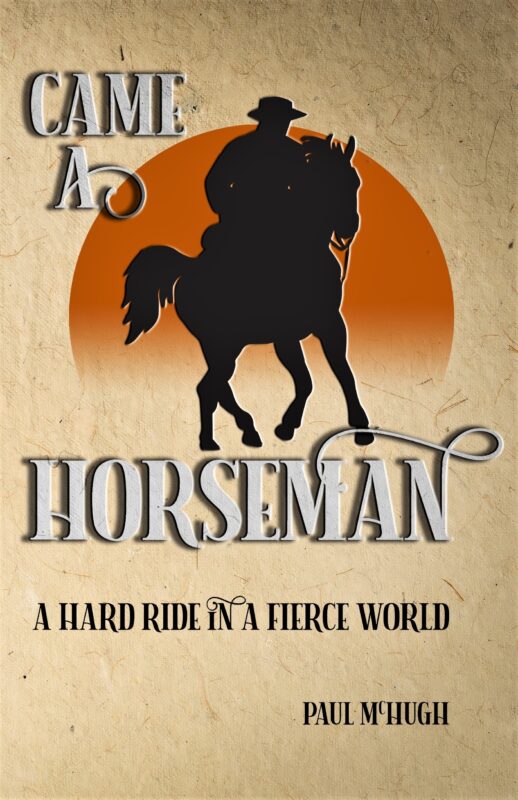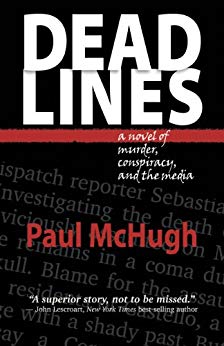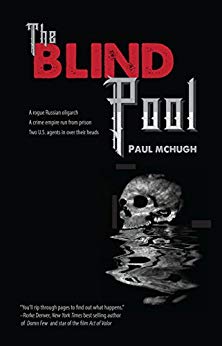Florida State University in Tallahassee, where I festered as a youth

Poetry’s strengths can be the strengths of all good writing.
This maxim is one I used to console myself after I graduated from college. Only then, with my English degree in hand, did I come to grasp the scope of my missed opportunity. You see, out of the entire array of writing classes that Florida State University had on offer, the sole courses in composition that I’d taken over two years were those in poetry.
This realization steadily grew more sobering and more vexing to me.
For instance: one missed opportunity was studying prose composition at FSU with Professor Shaara. By whom I mean: Michael-freakin’-Shaara, who won a Pulitzer for his epic novelization of the battle of Gettysburg, “The Killer Angels.”

Sometimes at night, when I can’t sleep, and I find myself counting holes in the ceiling tile, I still want to punch myself in the face over that sad gap in my formation as a writer. Because I could’ve picked up cues and clues from Shaara that might have saved me years – no, decades! – in my struggles to reinvent the literary wheel.
Ah, well, then. Let’s look on the bright side!
This bottle of Laphroig may be half-empty. Yet, even if it’s not half-full… all the rest of it should still taste pretty good when I pour it into my coffee.
A Birth of Rhyme and Reason

Shaara and I never so much as met or chatted. Yet I did score a perfectly splendid poetry instructor in Van K. Brock. He required us to master all the basics of meter, rhyme patterns and form. However, the true genius of his teaching lay in the way he insisted that we discover our own voices. While it was grand fun to learn to understand or imitate other poets, these practices were mere way stations on the long and bumpy road to a promised land – learning to speak forth directly and originally from the cores of our minds and hearts.
Brock nurtured a love of language by encouraging us to take full ownership of it.
Features I learned that helped my poetry come alive back in the day were: strength of image; creative phrasing that was still supposed to remain clear; the impact of surprise; the elixir of daring; the potency of insight; and – above all – a skillful wielding of rhythm.
And why the heck is rhythm so important?
The Heartbeat of Everything

As any physicist (or any surfer, for that matter) can tell you, everything comes in waves. Things that arrive shaped by period and amplitude are so central to our physical existence that any effort to disrupt or impede them is ultimately doomed to fail. Doesn’t mean those waves shouldn’t be played with, though. And the most important part of the previous sentence is its dangling preposition, “with.” That’s as true of language as it is of anything else. You’ll get much further with your play if you’re companionable, rather than combative.
As time has marched on, cultural preferences have marched too. The steady, predictable rhythm of popular poetry of past ages (“This is the forest primeval. The murmuring pines and the hemlocks…” – Longfellow ) can sound heavy, dull and turgid to modern ears. A poet’s license now has codicils that allow much wider variation. Writers other than poets also should avail themselves of our broad current permissions.

Rhyme can be “slant” rhyme; rhythm can be offbeat.
I still remember reading a novelist who wrote about his craft in a semi-confessional essay – I don’t remember the name of the guy, but that’s irrelevant – and he explained his selection of a particular word for a given sentence over another because it improved the rhythm. That was a moment of revelation to me. What?! Novelists care about rhythm, too? Well, of course they do. Poets aren’t the only linguistic sorcerers in town.
When you set about casting a prose spell with language, there are many rhythmic effects to strive for. Within a sentence, or a paragraph, you may wish to lull a reader into a calm mood in order to set them up for something startling a bit further on. You might aim to have your reader land with a jolt on a key image or bit of information that is pivotal to your plot. This can be achieved by manipulating the rhythm of a sentence, and that of the paragraph in which it is embedded.
The Dance of the Seven Veiled References

Beyond that, there are rhythms that can and should be played with throughout your entire story. One of my favorites is the rhythm of revelation. You first hint at the nature of your character, then you show that this hint is a ruse and a pretense on the part of the character, then you add the discovery of another character about the first character, and so forth – until the reader arrives at the Aha! moment when they realize that the hero is actually a villain. Or vice-versa. Or if we’re being resolutely post-modern, neither!
There are rhythms to plot development too, but one needs to be super-careful with these, because screenplays have worn down most basic formulas to a fare-thee-well. If a prose writer imitates such common movie rhythms too avidly in a novel, it’s pretty much guaranteed to become one of three things: a) boring; b) lurid pulp; c) incredibly boring.
That said, some tunes that use conventional pop structure end up being quite catchy. But if said tune ends up as an enduring hit, you’ll then usually find that there was some element of special creativity present that advanced or expanded the genre. Let me be the first to admit it, the same sort of exception can occur in pop lit.
Big Money in Poetry

My career in poetry was short-lived, and soon went subterranean. By which I mean, even if it was not palpably dead, yet indeed it seemed ostensibly buried. As an undergrad, I had submissions published by a few local Tallahassee journals. As a post-grad I had two poems accepted by a prestigious regional journal, POEM – put out by the Huntsville Literary Association. They sent me a check for $5. Even back then, that sum wouldn’t have covered a roadside diner breakfast if it included a refill on coffee and the tip. I mean, I appreciated the recognition and all, but still, in terms of livelihood, it made the years ahead look bleak.
Wish I’d kept that check. Framed, it would’ve made quite the inspirational display. But I needed dough so badly that I cashed it instantly.

The only clear professional path open to me was to accept a role as a lowly TA and then to trudge up the staircase of the ivory tower to supposedly illustrious professor-dom. Now, very few who had tramped that route managed to make it look attractive. I’d met poetry mega-star Galway Kinnell, for example, admired his work, and it seemed like the man still had plenty of fun being who he was. But in general, the academic path looked to me to be a stultifying evasion of life instead of a hearty and zesty embrace of it.
So instead, one day I lashed packs on my motorcycle and rode out of town, with zero notion of where I might wind up or what I might do when I got there.

Now I should state forthrightly – in case you haven’t picked up on the nuance thus far – that I was never the rose-sniffing, butterfly-peering, Eustace Tilly kind of poet. Yet neither did I ever aspire to be the Charles Bukowski nose-picking skidrow barfly kind of poet, either. I was more your long-haired, leather-jacketed, semi-Goth, pot-smoking, acid-dropping, motorcycle-gang style of versifier.
And I just picked myself up by my lil’ curly tail and flung my behind right out into the world to see what might happen to it. I was 22 years old.
These days, that seems quite young to me. But back then, I felt that I was far more than a league behind the game in terms of the life adventures that I ought to be chasing after in order to live as an artist.
I felt that I was seriously letting down my Beatnik poet ancestors. Falling behind on following their path, failing to keep up with their fervent, creative pace.
I endeavored to close in on them, make up any distance between us, by applying as much panache as I was able to gather in one spot. (Since the half-life of panache is so short, continuous gathering is required. That’s also true of elan, chutzpah, and brio.)
The Rake’s Process

I’ll spare you an account of all my subsequent travels and travails. But only for a while. I do threaten to reveal them in a subsequent newsletter. For now, I’ll just summarize my pro years between way back when and this present day. Thusly: I published a novel, it didn’t change my life; I launched myself into freelance journalism, it did change my life; so I committed myself to committing multiple acts of journalism over the ensuing three decades.
And now, I’ve gone back to writing novels once more.
Many things have fallen away from me over the intervening years. Skills, friends, lovers, many treasured tools and possessions. Also – sadly yet inevitably – youth. However, a few other legacy items have not only stuck around, they’ve seen steady growth in their potency and portent.
One of the main persistent items is my legacy from poetry. It literally grabs ahold of my head whenever I happen to sit myself down at a keyboard, or otherwise press pen to paper. The music of language has begun to exert major dominance over my craft.
Yes, I do always strive to bear in mind the wisdom of Elmore Leonard – take out anything that sounds like writing. And that of Steve Berry – don’t confuse the reader. But I also harken to Poe – everything in a piece should work toward a concerted effect. In my mind, that’s “concerted” as in “concert.”
Take the sounds or words, the significance of words, the rhythm of words, the sensual textures invoked, all culture references whether concealed or flaunted, the links between what you’re trying for now and what’s been tried by others long before, the patrician effect, the common touch, the dramatic tone, the humorous aside, the leitmotif, counterpoint, the fugue structure… all layered and arranged to convey a symphonic result.
That’s what I’m after now.
I wonder if Michael Shaara could or would have ever taught me that? Perhaps not.
And just as with poetry, the mechanics of this effort do not have to be perceived in order to be received. In fact, it’s better if they are not. The origin of the tricks and techniques of the magician are best left far up the long sleeve of his frock coat. One simply has to proceed to do the work without speculating overmuch about how or how well it shall be entertained or understood. Sometimes the very best effects are the ones that are unintended.
Thy Aim is True

Probably the single most memorable moment that occurred during my poetry years took place on a brilliant spring day. The air was so balmy and fragrant, that Van Brock announced we should take our class outside and all of us willingly agreed.
We distributed ourselves around in a ring beneath the shade of a large tree – a pecan, as I recall – and then set to reading our recent works. I was up first. I flopped open my notebook, opened my mouth, and prepared to pronounce my portentous first syllable. At that exact instant, a stream of bird poop descended from a branch above me and landed in a big, white splatter on the page that held my poem.
I was stunned, amazed, and crestfallen. But everyone else went into complete hysterics. I’m talking, eye-watering, rolling-on-the-ground laughter that lasted for minutes. Of course, I joined in. What else could I do? It seemed the cosmos had passed judgment, and I was forced to submit as gracefully as possible. If I’d taken the graceless route and merely cussed and fumed, undoubtedly the laughter would’ve gone on much longer. But eventually, I did manage to gasp out a rejoinder. “Well! Everyone’s a critic.”
My point is, if a moment like that did not dissuade me from pursuing poetics, most likely nothing ever shall.
And sure enough, in my autumnal years, that pursuit has now come roaring back to life and started to wreak its will quite wantonly, even upon my prose.

The English Department building at FSU. Williams Hall, and my home-away-from-home for two years








